Tỉnh Dòng La San
Việt Nam
Các Sư Huynh
Giám
Tỉnh
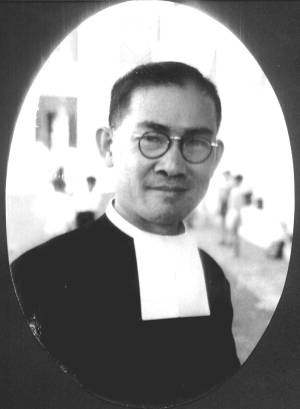
Frère Cyprien Gẫm
1951-1960 |
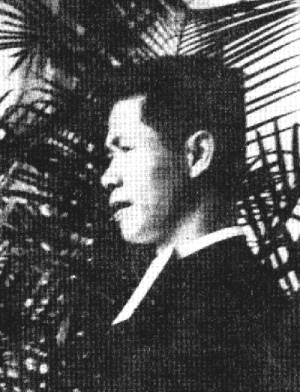
Frère Bernard Bường
1960-1969 |
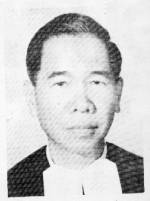
Frère Bruno Bằng
1969-1975 |
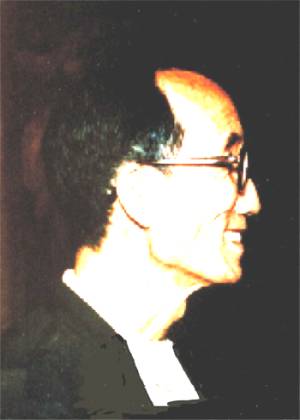
Frère Lucien Quảng
1975-1987 |
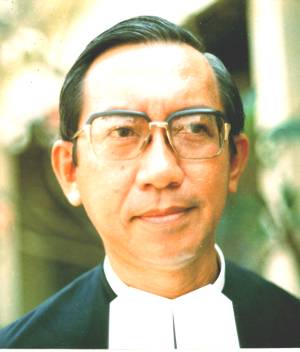
Frère Maurice Triều
1987-1992 |
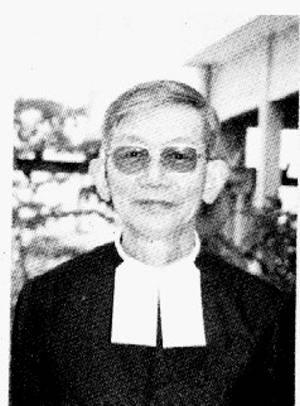
Frère Francois Ánh
1992-2003 |
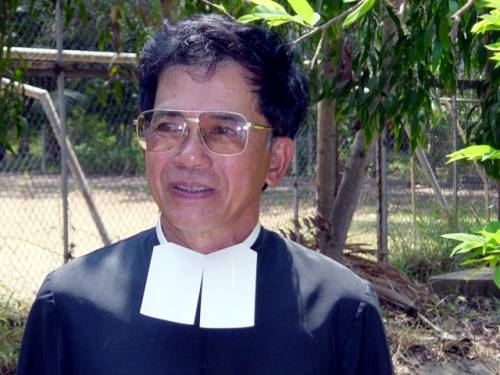
Frère Grégoire Tân
2003-2011 |
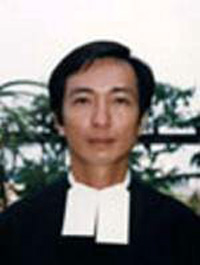
Frère Pierre Phát
2011-2019 |
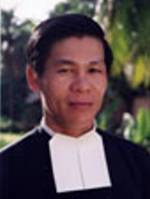
Frère Joseph Phượng
2019- |
|
District of Vietnam

Beginnings: Towards the end of 1865, six French Brothers left
Toulon for Indochina. They arrived in Saigon in January 1866 and took over the running of
the College d'Adran in Dalat, founded in 1861 by priests from the Paris Foreign Missions
Society.
The reputation of the Brothers quickly spread beyond Saigon. In response to appeals by
clergy and the people, the Brothers opened schools in Cholon and Mytho in 1867, and in
Vinh Long and BacTrang in 1869. For a time, the French authorities supported these
developments and provided scholarships for pupils, which gave the Brothers something to
live on. From 1879 onwards, however, France changed its educational policy. In France
itself, first the freedom of teaching in schools run by congregations was restricted and
then the schools were forced to close. In Indochina and in other French colonies, the
government did not apply these new laws, but it did away with scholarships to pupils in
schools run by congregations. The College d'Adran was closed through lack of money and
teachers.
In 1873, a certain Fr. Kerlan opened a free school for abandoned children, some of whom
were Eurasians. The school was called Taberd. When the College d'Adran closed, parents
sent their children to Taberd. The priest could not cope with the influx and took steps to
bring the Brothers back.
In 1899, nine Brothers set off from Marseilles. The Brothers arrived at Saigon and were
met by a cheering crowd. The Taberd school was handed over to the Brothers in 1890. The
following year, numbers increased so much that five more Brothers had to be sent and a
free school was opened on the same property. An annexe had to be opened at Vung Tan (Cap
St. Jacques).
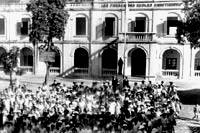 In January 1896,
the Brothers of Indochina left the District of India to form the new District of Saigon.
In the course of the same year, the Missionary Society gave the Brothers a property at Thu
Duc, 12 kilometres from Saigon, to build a novitiate. In 1897, a second free annexe was
opened at Taberd.
In January 1896,
the Brothers of Indochina left the District of India to form the new District of Saigon.
In the course of the same year, the Missionary Society gave the Brothers a property at Thu
Duc, 12 kilometres from Saigon, to build a novitiate. In 1897, a second free annexe was
opened at Taberd.
In 1898, a school for future teachers was opened at Thu Duc, next to the novitiate.
Fr. Armar, a missionary priest who had opened a school for deaf and dumb children, sent
the boys to the Brothers. The school, which was at Lai Thieu, was subsequently moved to
Gia Dinh and became a technical school where the deaf and dumb children were taught
carpentry, wood sculpture and shoe making.
In 1894, two Brothers were sent to Hanoi. They were so successful that the bishop first
had to rent larger premises in Rue Ferry to cater for the increased numbers of pupils, and
then finally to buy a large property and build a big school including classrooms, chapel
and accommodation for the Brothers. The school was opened in 1879.
The District numbered at that time 6 houses, 76 Brothers, 17 scholastics and 6 novices.
In spite of no help from the French authorities, the work of the Brothers developed
rapidly.
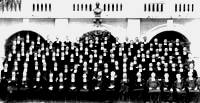 When the 1975
events took place, the District numbered 300 Brothers and 15 or so novices. The Brothers
ran 23 establishments including primary, secondary and technical schools, boarding schools
for Vietnamese and the mountain people, an ethnic minority, a center for blind children
and a teacher training college. Catholic Action and youth movements thrived in them: the
"Coeurs Valliants", Young Christian Students, the Sodality of the Blessed
Virgin, Scouts, etc.
When the 1975
events took place, the District numbered 300 Brothers and 15 or so novices. The Brothers
ran 23 establishments including primary, secondary and technical schools, boarding schools
for Vietnamese and the mountain people, an ethnic minority, a center for blind children
and a teacher training college. Catholic Action and youth movements thrived in them: the
"Coeurs Valliants", Young Christian Students, the Sodality of the Blessed
Virgin, Scouts, etc.
When the schools were founded they were free, but gradually became fee-paying. The
Brothers' traditional attachment to free schools was not forgotten, however: the poor were
not neglected.
The Brothers' schools accepted all pupils without distinction of social class or religion.
Although prayer and catechism were included in the curriculum, the religious beliefs of
everyone were respected which explains how having a Christian school in a non-Christian
country never caused the Brothers any problem.
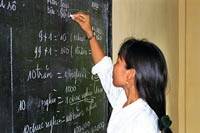 The Brothers
since 1975: Right after the fall of Saigon in '75, all twenty-seven establishments of
the LaSan Education System were to be so-called "offered" to the new government
of Hanoi who just re-confirmed that "what is offered, is offered!"
The Brothers
since 1975: Right after the fall of Saigon in '75, all twenty-seven establishments of
the LaSan Education System were to be so-called "offered" to the new government
of Hanoi who just re-confirmed that "what is offered, is offered!"
Somehow, the disciples of Saint De La Salle, so deeply inspired by their Founder's Spirit,
have been able to find ways to serve poor people wherever and whenever they can. Brother
Simeon has very well presented this "spirit of faith and zeal", edited as
follows:
 First we are
profoundly grateful to the Divine Providence for having put us in a privileged situation
to carry out the core Lasallian mission of "giving Christian education to the
poor." This should be seen as a real bliss for us, and through the eye of faith we
can identify greater opportunity and stronger motivation for us to live out our Lasallian
vocation.
First we are
profoundly grateful to the Divine Providence for having put us in a privileged situation
to carry out the core Lasallian mission of "giving Christian education to the
poor." This should be seen as a real bliss for us, and through the eye of faith we
can identify greater opportunity and stronger motivation for us to live out our Lasallian
vocation.
Being devoid of schools and their infrastructure enables us to devote more of our time and
effort to embrace straightforwardly the Lasallian "principal function" of
evangelization and catechesis. Thus, we have been trying to respond to one of the most
urgent needs of our youth. Meanwhile, in terms of poor, we are fully immersed in the world
of the poor. Those most beloved children of God are right at our door, we do not have to
reach out.
Our mission is mainly focused on Catechesis, Remedial/vocational education, and the
Formation of Brothers.
Our work is characterized by quasi-gratuity, flexibility, and abandonment to God.
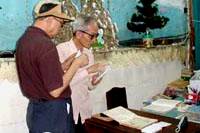 Catechesis: Almost
all our Brothers, even those in their eighties, are directly involved in catechesis. This
has been done in various ways such as catechism in parochial churches, catechist training,
and YCS movements. This is also done, sometimes, in an ingenious way through Bible sharing
in English or French, for example. In this way we combine studying Holy Scripture and
practicing a foreign language.
Catechesis: Almost
all our Brothers, even those in their eighties, are directly involved in catechesis. This
has been done in various ways such as catechism in parochial churches, catechist training,
and YCS movements. This is also done, sometimes, in an ingenious way through Bible sharing
in English or French, for example. In this way we combine studying Holy Scripture and
practicing a foreign language.
To do catechesis, the Brothers must undergo a real conversion. Our mathematicians and
scientists had to put aside their formulas and go digging into Paulian epistles. The
results show that they have been successful.
To cope with the lack of updated learning /teaching materials, Brother Alloysius, a former
mathematics teacher now in his eighties, has labored in writing textbooks and workbooks
for those religious classes. His series of materials proved to be efficient and has been
quite widely used.
Catechist training constitutes our main effort. Wherever possible we stage training
sessions to help those volunteer catechists refresh their religious knowledge and learn
more appropriate ways to present it to their disciples. Young Lasallian scholastics are
very active in this sector. Many catechist rallies have been held in Mai Thon. Twice a
group of them have gone on an exposure to CaMau, the southernmost rural province of
Vietnam where the only transportation is by means of boats. The enthusiasm and eagerness
shown in their reports showed their success and also their readiness to return to those
remote and deprived swamps.
Somehow different from the common practice in western countries - all the above works are
gratuitous. We are happy that they are as they were in the Founder’s time:
beneficiaries have nothing to pay for their religious instruction.
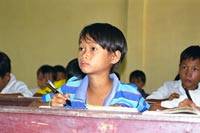 Remedial
Vocational Education: To address the problem of inefficient teaching in public schools
and also to earn some income for community budgets, most Brothers are involved in Tutorial
lessons, Boarding houses, and Language/Vocational centers.
Remedial
Vocational Education: To address the problem of inefficient teaching in public schools
and also to earn some income for community budgets, most Brothers are involved in Tutorial
lessons, Boarding houses, and Language/Vocational centers.
Tutorial lessons are given mostly in the community precincts. Parents are happy and
confident to entrust their children to the Brothers’ care. There is a wide range of
subject matter, a wide range of ages and, especially, flexible schedules. Brother Victor,
for example, is able to set up a system of remedial classes for 700 schoolchildren in Hue
with the help of some volunteers and Lasallian aspirants.
In order to have a safe and favorable environment for their study, students turn to the
Brothers. Almost all of our communities state in their Community Annual Projects their
desire to set up and take care of boarding houses. Some 200 students are currently
accommodated in our communities. Many new Lasallian recruits also come from these
"nurseries."
We have also managed to get official licenses for some of our language and computer
centers. Up to now, thousands have received their certificates of English or computer
skills, and with them many of our students are able to find quite choice jobs.
In a parallel way, with the support of friends and former students, vocational classes for
street or disabled children have been set up. Those zero-fee woodcarving and
cycle-maintenance training courses help give them the skills to earn an honest living on
their own.
 Lasallian
Formation: Fully aware of the fact that a good number of young people still want to
join us, and realizing our own responsibility for the vitality of the Institute, the
District Chapter has set up an aggressive plan of formation: formation houses, formation
staffs and programs, and the Vietnamization of Lasallian writings
Lasallian
Formation: Fully aware of the fact that a good number of young people still want to
join us, and realizing our own responsibility for the vitality of the Institute, the
District Chapter has set up an aggressive plan of formation: formation houses, formation
staffs and programs, and the Vietnamization of Lasallian writings
Communities with existing boarding houses are given the task of nurturing aspirants until
they are mature enough to join the postulancy. So together with our Postulancy, and
Novitiate, our newly built Scholasticate constitutes a complete formation infrastructure.
The program for the formation of aspirants, novices and scholastics is to be duly revised
and so that there will be "a complete, comprehensive and updated program of
formation." Moreover, a project of formator training and a special status for the
Director of Formation are being worked out.
Meanwhile, to help our young Brothers with a low mastery of English or French, all the
documents from the Generalate have been translated into Vietnamese. A project aimed at
providing the Brothers with more Vietnamese versions of Lasallian publications is being
drafted in view of celebrating the centenary of the canonization of our Founder. This will
also serve as an impetus for the permanent formation of the older Brothers.
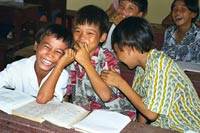
Challenges: Serious
challenges are waiting for us. To be up to the impending tasks we have to improve and
update our competence in many areas. An efficient project of permanent formation should be
put into place. The lack of competence in foreign language of many of our younger Brothers
is still to be addressed aggressively. Objective difficulties will not disappear tomorrow
morning, so the Brothers should strengthen their tenacity in being faithful to their
Lasallian vocation.
Hope: Not waiting for a better working environment, we try to do the most possible,
making ours the words of our Rule: "Despite the difficulties which they meet, the
Brothers known in faith that God does not abandon his work, but that it pleases him to
make it bear fruit day by day." (R. 141)




 In January 1896,
the Brothers of Indochina left the District of India to form the new District of Saigon.
In the course of the same year, the Missionary Society gave the Brothers a property at Thu
Duc, 12 kilometres from Saigon, to build a novitiate. In 1897, a second free annexe was
opened at Taberd.
In January 1896,
the Brothers of Indochina left the District of India to form the new District of Saigon.
In the course of the same year, the Missionary Society gave the Brothers a property at Thu
Duc, 12 kilometres from Saigon, to build a novitiate. In 1897, a second free annexe was
opened at Taberd. When the 1975
events took place, the District numbered 300 Brothers and 15 or so novices. The Brothers
ran 23 establishments including primary, secondary and technical schools, boarding schools
for Vietnamese and the mountain people, an ethnic minority, a center for blind children
and a teacher training college. Catholic Action and youth movements thrived in them: the
"Coeurs Valliants", Young Christian Students, the Sodality of the Blessed
Virgin, Scouts, etc.
When the 1975
events took place, the District numbered 300 Brothers and 15 or so novices. The Brothers
ran 23 establishments including primary, secondary and technical schools, boarding schools
for Vietnamese and the mountain people, an ethnic minority, a center for blind children
and a teacher training college. Catholic Action and youth movements thrived in them: the
"Coeurs Valliants", Young Christian Students, the Sodality of the Blessed
Virgin, Scouts, etc. The Brothers
since 1975: Right after the fall of Saigon in '75, all twenty-seven establishments of
the LaSan Education System were to be so-called "offered" to the new government
of Hanoi who just re-confirmed that "what is offered, is offered!"
The Brothers
since 1975: Right after the fall of Saigon in '75, all twenty-seven establishments of
the LaSan Education System were to be so-called "offered" to the new government
of Hanoi who just re-confirmed that "what is offered, is offered!" First we are
profoundly grateful to the Divine Providence for having put us in a privileged situation
to carry out the core Lasallian mission of "giving Christian education to the
poor." This should be seen as a real bliss for us, and through the eye of faith we
can identify greater opportunity and stronger motivation for us to live out our Lasallian
vocation.
First we are
profoundly grateful to the Divine Providence for having put us in a privileged situation
to carry out the core Lasallian mission of "giving Christian education to the
poor." This should be seen as a real bliss for us, and through the eye of faith we
can identify greater opportunity and stronger motivation for us to live out our Lasallian
vocation. Catechesis: Almost
all our Brothers, even those in their eighties, are directly involved in catechesis. This
has been done in various ways such as catechism in parochial churches, catechist training,
and YCS movements. This is also done, sometimes, in an ingenious way through Bible sharing
in English or French, for example. In this way we combine studying Holy Scripture and
practicing a foreign language.
Catechesis: Almost
all our Brothers, even those in their eighties, are directly involved in catechesis. This
has been done in various ways such as catechism in parochial churches, catechist training,
and YCS movements. This is also done, sometimes, in an ingenious way through Bible sharing
in English or French, for example. In this way we combine studying Holy Scripture and
practicing a foreign language. Remedial
Vocational Education: To address the problem of inefficient teaching in public schools
and also to earn some income for community budgets, most Brothers are involved in Tutorial
lessons, Boarding houses, and Language/Vocational centers.
Remedial
Vocational Education: To address the problem of inefficient teaching in public schools
and also to earn some income for community budgets, most Brothers are involved in Tutorial
lessons, Boarding houses, and Language/Vocational centers. Lasallian
Formation: Fully aware of the fact that a good number of young people still want to
join us, and realizing our own responsibility for the vitality of the Institute, the
District Chapter has set up an aggressive plan of formation: formation houses, formation
staffs and programs, and the Vietnamization of Lasallian writings
Lasallian
Formation: Fully aware of the fact that a good number of young people still want to
join us, and realizing our own responsibility for the vitality of the Institute, the
District Chapter has set up an aggressive plan of formation: formation houses, formation
staffs and programs, and the Vietnamization of Lasallian writings